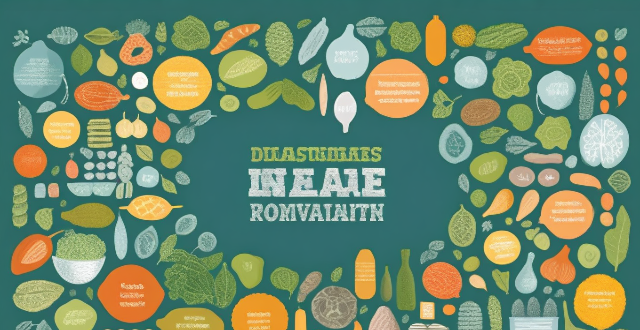The text discusses the role of food imports in globalization, highlighting its impact on economic integration, cultural exchange, and the development of global supply chains. It explains how increased market access through food imports diversifies consumption and fosters competition among domestic producers. Trade agreements related to food imports can strengthen diplomatic relations and lead to tariff reductions and standardization of regulations. Cultural exchange is promoted through exposure to new cuisines and influence on local dishes, as well as enhancing culinary education and raising environmental awareness. The development of global supply chains benefits from specialization and efficiency, leading to improved quality and logistical advancements. Overall, food imports play a crucial role in enriching lives with diverse flavors and bridging gaps between nations.

The Role of Food Imports in Globalization
Globalization is the process by which businesses or other organizations develop international influence or start operating on an international scale. One significant aspect of globalization is the movement of goods and services across national borders, including food products. The importing of food plays a crucial role in this process, contributing to economic integration, cultural exchange, and the development of global supply chains.
Economic Integration
*Increased Market Access*
Importing food allows countries to access a wider variety of products that may not be available domestically due to climate or agricultural limitations. This increased market access can lead to:
- Diversification of Consumption: Consumers can enjoy a broader range of food options.
- Competition: Domestic producers are challenged to improve quality and reduce costs in the face of international competition.
*Trade Agreements and Relations*
Food imports often involve complex trade agreements that foster stronger diplomatic relations between countries. These agreements can lead to:
- Tariff Reductions: Making imported food more affordable and accessible.
- Standardization of Regulations: Harmonizing food safety and quality standards across borders.
Cultural Exchange
*Exposure to New Cuisines*
Food imports bring with them the flavors and traditions of other cultures, which can:
- Promote Multiculturalism: Encouraging the acceptance and appreciation of different cultural practices.
- Influence Local Cuisine: Leading to fusion dishes and new culinary trends.
*Education and Awareness*
Learning about the origins and production methods of imported food items can:
- Enhance Culinary Education: Providing insights into global agriculture and food preparation techniques.
- Raise Environmental Awareness: Educating consumers about sustainable farming practices and the impact of food miles.
Development of Global Supply Chains
*Specialization and Efficiency*
Countries can specialize in producing certain foods where they have a comparative advantage, leading to:
- Increased Efficiency: Reducing costs through economies of scale.
- Improved Quality: As producers focus on perfecting specific products.
*Logistics and Infrastructure*
The demand for efficient transport of perishable goods has led to advancements in:
- Cold Chain Logistics: Ensuring the freshness and safety of food during transit.
- Infrastructure Development: Investment in ports, warehouses, and transportation networks.
Conclusion
The act of importing food is not merely an economic transaction; it is a catalyst for deeper global connections. It facilitates economic growth, cultural understanding, and technological advancements in logistics. As globalization continues to shape our interconnected world, food imports will remain a vital component, enriching lives with diverse flavors and bridging gaps between nations.